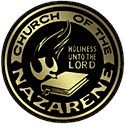Welcoming the stranger not optional! (but not always easy either)
"Migration is a fact of life. It is as much an instinct to survive as it is an inevitable consequence of globalisation. We can neither turn our backs on it, nor control it," declared participants at a 15-16 April Public Hearing on Migration and the Changing Ecclesial Landscape in Beirut, Lebanon.
"Migrants are not commodities, illegal aliens or mere victims, they are human beings," the statement adds.
Around the world, people are leaving their home countries in search of safety, freedom or a better life. These migration flows are a challenge to churches as migrants bring their own traditions and values into local parishes or create their own religious communities, church leaders at the conference noted. At the same time, they are pressing churches to live up to their mandate to act and speak out in favour of the weak where migrants and refugees are being victimised.
"Welcoming the stranger is not optional for Christians. Nor is it conditional." said World Council of Churches (WCC) General Secretary Rev Dr Samuel Kobia addressing the hearing on Tuesday. The church should strengthen its hospitality in an "era of new forms of migration", whilst being an "advocate and defender of the right of people to move freely within their own nation and leave their home and live elsewhere in search of their God given right to life with dignity," he added.
Reminding the audience of the 54 Burmese who died earlier this month from suffocation in a truck which should have smuggled them into Thailand, the Christian Conference of Asia General Secretary, Dr Prawate Kid-arn, called for a positive understanding of migrants. "Migration is a courageous expression of an individual's will to overcome adversity and live a better life." For Kid-arn, the "most effective way to prevent trafficking is to provide legal channels for migration and employment that meets national standards".
This assessment was backed by Doris Peschke, general secretary of the Churches' Commission for Migrants in Europe, who called the European Union's migration and asylum policy "contradictory and ambiguous". Peschke cited the positive example of internal migration within the EU which is addressed "not with laws on aliens but with social and integration programmes", adding that this is "the response needed also for third country nationals".
church of the nazarene broadwalk knowle park bristol bs4 2rd

